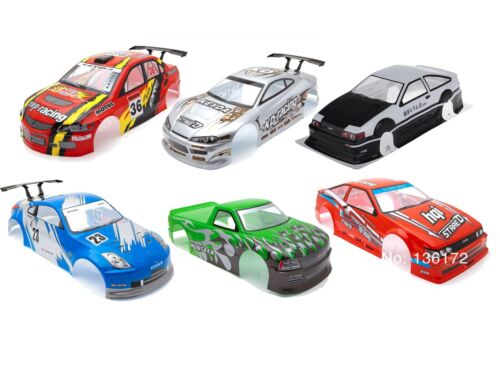
Puzzles can help improve hand-eye coordination. Puzzles improve hand eye coordination as well as spatial perception skills and problem-solving skills. You can also teach your kids new things. Learn more about puzzles for children and what you can do make them more enjoyable and educational. This article will discuss three advantages of puzzles for children. Here are just a few of them.
Puzzles improve handeye coordination
Children who enjoy puzzles develop hand-eye coordination. This is because children must use both their eyes and hands in order to cooperate. These skills enable the brain to do actions, such as walking and writing. The skills they develop while playing with puzzles are necessary for future life skills, such as problem-solving. Fine motor skills such as pinching and gluing and picking up are also developed.
Children can learn to manage their time and organize large tasks by solving puzzles. Children learn to sort pieces according to shape by starting at the edges. This step-by–step approach teaches patience as well as the feeling of satisfaction when the last piece is arranged. This skill is critical for success later in life, especially in school. It is also a great way for children to learn social skills such cooperation and communication.

They improve problem-solving skills
Some puzzles may help you develop problem-solving abilities, while others are more fun. Puzzles can help your child develop whatever interests them. Research suggests that puzzles may improve your child’s ability to think critically and develop logical reasoning. Puzzles can not only be fun, but they can also help your child learn how to work with others and in teams. These three factors make puzzles an excellent choice for young children.
While children play with puzzles, they also learn about shapes, colors, and other important aspects. Children can improve their cognitive development by sorting and applying the knowledge. They will learn how to interact with their environment, and what to do to improve their understanding of it. And while they're at it, they'll learn to cooperate with other kids and communicate their strategies with each other.
They improve spatial perception
Puzzles make children more spatially aware. It's unclear how. While some studies suggest that puzzles help improve spatial thinking in children, others show no correlation. However, they found that puzzle-playing children for longer periods of time is more likely to develop spatial reasoning skills. This may be because the child is unable to shift and sustain their attention.
The authors of the new study also found that boys engage in more spatial play than girls. These activities include puzzles and blocks as well as board games. But, it is still unclear how these play activities affect spatial reasoning. This finding could have implications both for educators and parents as well as for the toy business. But, they warn that further research is necessary before any conclusions are drawn. Further research is needed to determine the best educational strategies for children.

They teach children new things.
Puzzles are an excellent way to teach children new things, and there are plenty of educational benefits to be gained. Puzzles encourage problem solving skills, as children plan to place pieces together. They help children make quick decisions, and develop their observational skills. Puzzles are a great activity for kids who love learning new things. Here are some advantages of puzzles for children. Read on to learn how puzzles can help kids learn new things!
It is important that your child has good cognitive skills for reading, math, and other subjects. Puzzles help children learn new shapes and animals. These skills are essential in any subject area, so puzzles can be a great way to develop them. This helps children develop confidence by teaching them how to recognize patterns. Puzzles can be a great way to spend quality time with your family. A simple game such as racing through a maze to solve a riddle or race through it can help foster family bonding.
FAQ
What are educational hobbies?
A hobby that teaches you something is called an educational hobby. This could include anything from learning to play an instrument to playing sports.
It should be enjoyable and fun for you. You don't have to do it all the time, but if you find yourself getting bored, then you need to think about what else you could be doing instead.
You also want to ensure you're not spending too much on these activities because they can end up costing you more than they're worth.
How do I get started?
To start a new hobby, you must first decide what type of activity you would like to do.
Passion is essential once you have selected your subject.
Understanding why you are interested in a hobby is important. It will give you some direction and purpose.
After you have decided on the type of hobby you want to pursue, it's time to start planning.
Take a look at the equipment you will need.
Consider whether classes or seminars are necessary.
You must ensure you have enough room for your hobby.
Consider joining a club, or group. These groups usually offer support and advice.
The last thing you should do is think about how much money it would cost to pursue your hobby.
Is it possible make a living from a hobby?
Not necessarily.
You could be wealthy if you have a passion for starting your own business.
For example, let's say you're a fan of cooking. You love healthy food, so it was a natural decision to open your own restaurant.
You only serve organic, homemade meals and you charge a small amount to customers to cover labor costs.
Over time, you grow your clientele and eventually hire employees who work alongside you.
Eventually, you expand your menu to include gluten-free options, vegan dishes, and desserts.
This is how you have created a successful company that has enabled you to enjoy the lifestyle you desired.
But, it doesn't mean your day job must be abandoned.
You could also run your restaurant, while still maintaining your 9-5 job.
Statistics
- In comparison, men in the “no humor” condition were refused 84.6% of the time and were only accepted 15.4% of the time. (time.com)
- 37% Video Games 36% Travel 36% Health and Fitness (quizexpo.com)
- A new survey by Pew Research Center of teens ages 13 to 17 finds that 36% of girls feel tense or nervous about their day every day; 23% of boys say the same. (pewresearch.org)
- The Role of the Mind in Sex, Dating, and Love: Men in the “humor” condition received phone numbers from 42.9% of the female participants and were refused 57.1% of the time. (time.com)
- Studies show that just six minutes of reading can reduce stress levels by 60 percent. (oberlo.com)
External Links
How To
How to Get Started Biking
Bike riding has become a very popular activity. It's great exercise and fun, plus you get to enjoy the fresh mountain air. However, bike riding requires skill and practice before becoming proficient at this sport. You must learn how to ride your bicycle correctly so that you don't fall off while riding. Here are some tips to help learn how you can ride your bike safely.
It is important to wear appropriate cycling clothing. Comfortable clothing will protect you from the elements and should fit well. When you go out riding, make sure you have a helmet. You will not feel any pain if your head is hurt by a crash. Also, make sure that your bike fits well. In the event of a collision, a bike that is not properly fitted could result in injuries.
You should also make sure to check your tires on a regular basis. You should make sure they are properly inflated to provide sufficient traction. Every week, you should check the tire pressure. When checking them, ensure the treads are clean and free from debris. To ensure there are no leaks, check the stems of the valves. Make sure that the brakes work properly. While riding, look ahead and see what's coming up. Avoid riding in traffic as it is dangerous. Pay attention to pedestrians and animals. When riding, remember to use common sense. Don't drive like a maniac, and avoid making sudden movements.